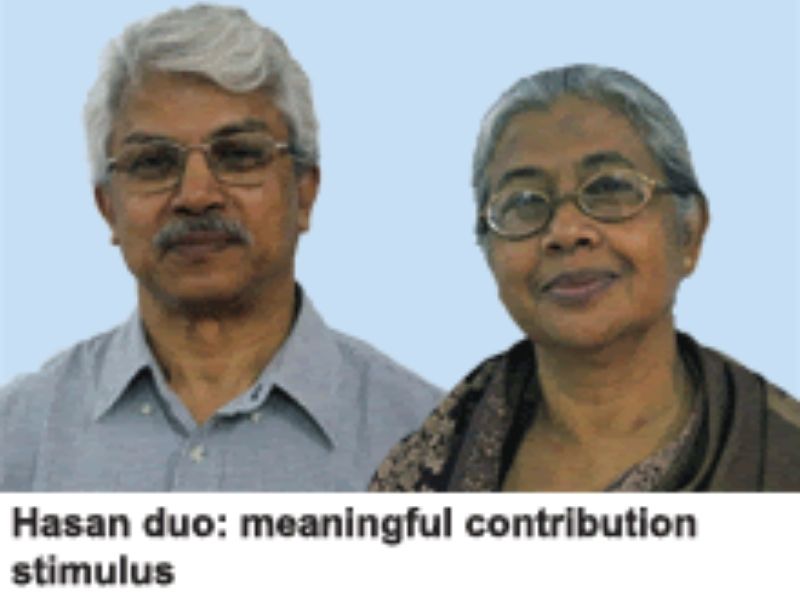Since the People’s Republic of Bangladesh was famously written off as a “basket case nation-state” by the former American secretary of state Dr Henry Kissinger in 1971, despite suffering military coups and political instability, and often ravaged by floods and cyclones, this low-lying nation has surprised India and the world by pioneering several innovative socio-economic development initiatives. Among them: micro-finance banking (the Grameen Bank founded by Nobel laureate Dr. Mohammed Yunus); development of a globally competitive readymade garments industry; restoration of democracy and not least Bangladesh’s emergence as a front-rank cricket-playing nation. Now to this list add low-cost private primary education.
 On August 28 Dhaka-based educationists Dr Mahmood and Shamse Hasan wowed the 400 delegates at the Inspire Ed Conference 2010 convened by the Mumbai-based NGO Akanksha with a brilliant presentation outlining the extraordinary growth and development of Gonoshahajjo Sangstha (GSS) into Bangladesh’s largest privately promoted not-for-profit chain of 700 primary schools in and around the national capital Dhaka.
On August 28 Dhaka-based educationists Dr Mahmood and Shamse Hasan wowed the 400 delegates at the Inspire Ed Conference 2010 convened by the Mumbai-based NGO Akanksha with a brilliant presentation outlining the extraordinary growth and development of Gonoshahajjo Sangstha (GSS) into Bangladesh’s largest privately promoted not-for-profit chain of 700 primary schools in and around the national capital Dhaka.
“GSS is an education NGO whose objective is to provide high-quality primary education to children of the poorest of the poor at the world’s lowest prices. Over the past 35 years we have developed a pedagogy based on the most advanced models of the western world for the equivalent of $30 (Rs.1,350) per student per year,” says Dr Mahmood Hasan, a politics and economics alumnus of SOAS (School of Oriental and African Studies), London and former BBC television host.
The inspiration for GSS which has set new standards for primary education in one of the world’s poorest nations was born after Dr Hasan returned to Bangladesh to work with the Bangladesh Institute of Studies (BIS) in 1981. “Having resided in the UK for over 20 years, we were shocked by the absolute poverty in which the great majority of people were living in our native land. Therefore we resolved to return to Bangladesh and contribute our knowledge and expertise to our people. Since my wife Shamse is an expert on primary education having worked on curriculum development with the Inner London Authority for over two decades, we felt we could make a meaningful contribution to the development of primary education in Bangladesh,” recalls Hasan.
Therefore Dr Hasan resigned from his position at BIS and invested all their savings in GSS. In 1983 they promoted their first primary for children of desperately poor railway porters in Dhaka.
Since then with the help of local businessmen, and aid and advice from international organisations including Unicef, Oxfam, Ceda (Sweden), The World Bank, and DFID (UK), the number of GSS primaries in Dhaka and its environs has multiplied to 700 with an aggregate enrolment of 21,000 children aged four-11.
Having developed the cheapest globally bench-marked primary education model worldwide for Bangladesh, the Hasans are looking to export it to the neighbouring countries of South Asia and India in particular. “Our immediate plan is to employ competent professional educators who can document and scale up our primary education model for rolling out countrywide and later we will export it to neighbouring countries, including India. All evidence indicates that without sound primary education systems delivering excellent learning outcomes, it’s impossible for developing countries to emerge from chronic poverty. Our mission in GSS is to build an excellent elementary education system for Bangladesh and the struggling nations of the third world,” says Shamse Hasan.
The Force be with you!
Bharati Thakore (Mumbai)























